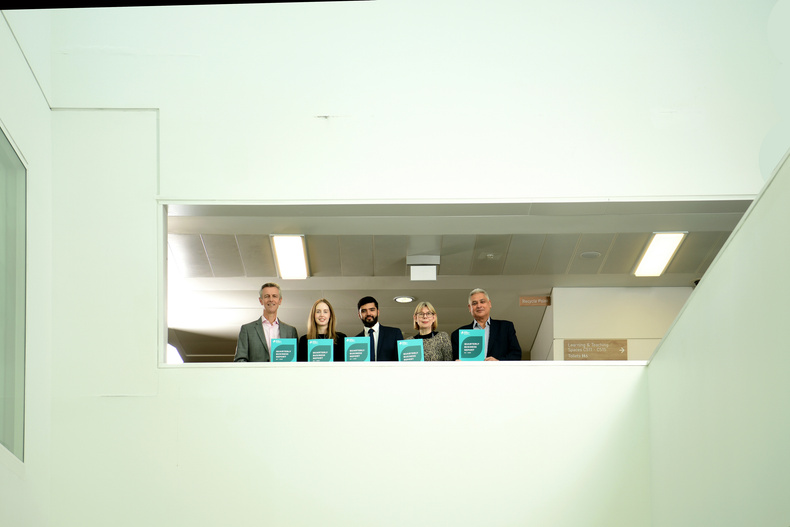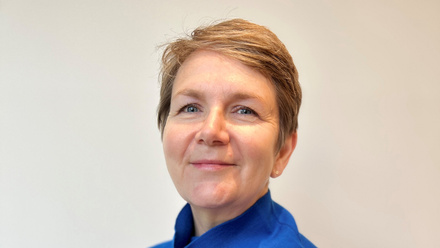Sustainability and business support share spotlight in Chamber’s Quarterly Business Report launch

Greater Birmingham Chambers of Commerce (GBCC) launched the Quarterly Business Report for Q3 yesterday, with a focus on business support structures and advantages of having sustainable business practices.
The event, held yesterday at Birmingham City University, was hosted by GBCC acting deputy CEO Raj Kandola.
The report, sponsored by Birmingham City University, is the most comprehensive of its kind in the city-region, offering an up-to-date snapshot of the performance of the Greater Birmingham business community.
During the launch, GBCC head of policy Emily Stubbs summarised the main outcomes of the report.
She said: “Once again, labour costs remain the most significant factor behind price pressures on Greater Birmingham businesses, exacerbated by the increase in employer National Insurance Contributions announced at the 2024 Autumn Budget.
“Since Q3 2024, the labour force balance score has declined quarter on quarter, with the proportion of local firms increasing the size of their workforce falling over the year by 7 percentage points, to 23 per cent.
“Meanwhile, the proportion of businesses anticipating growth in their headcount over the next three months has declined from a third (33 per cent) of firms in Q3 2024, to less than a quarter (24 per cent) in Q3 2025.”
Speaking about the upcoming Autumn budget, Emily said: “The prospect of the forthcoming Employment Rights Bill, coupled with speculation regarding potential tax increases in the next Autumn Budget, are intensifying the already significant pressures confronting local firms.
“The Chancellor must use the upcoming Budget as an opportunity to support growth, by alleviating cost burdens and helping organisations to attract, develop, and retain skilled talent.”
Attendees also heard from Bill Welch, senior business growth advisor at Innovate UK, Ravi Sahota from World Wide Generation, and Heike Schuster-James, Birmingham City University associate director of business development.
Bell Welch outlined the support offered by Innovate UK, a UK government-backed organisation that provides grants, investments, and support to help businesses expand and grow.
He said: “We equip innovation-focused businesses to make the best strategic choices and harness the right resources to accelerate their growth.
“Each year, more than 6,000 innovators benefit from our intensive, tailored advisory support to achieve their ambitious goals. With over 450 innovation specialists across the country, we connect businesses to a powerful network of local, national and international resources.
“We work closely with key stakeholders — including the UK Government, the Department for Business and Trade, and the London Stock Exchange — to open doors and create opportunities for growing businesses.”
Bill also highlighted the emergence of AI and encouraged businesses to explore different innovation initiatives already available.
He said: “There’s real potential in working with universities through Knowledge Transfer Partnerships (KTPs) to move from experimentation to developing informed, embedded AI systems that boost progress.”
Ravi Sahota from World Wide Generation shared a powerful message about the role of values and data in driving genuine, profitable sustainability.
He explained that while financial data has long been measured with precision, sustainability data has lacked the same reliability — a gap his organisation, Worldwide Generation, was created to close.
Ravi said: “We set up Worldwide Generation because poverty, inequality and injustice have been rising globally — despite billions being spent to fix them. We realised the data driving decisions simply wasn’t accurate.
“Our mission is simple: collect meaningful, benchmarked, and trusted sustainability data so governments and businesses can make better decisions for people and the planet.
“Our platform now brings together over 7,000 questions, aligning with global regulations and standards - from the Singapore Stock Exchange to Nestlé and HSBC.
“We’ve created a programme called Tree of Life, which helps everyone - from boards to employees to the public — truly understand what sustainability means.
“The UN estimates that investing $2 trillion to meet sustainability goals unlocks $12 trillion in opportunity. Sustainability isn’t a cost - it’s a growth strategy.
“If we become kinder and more transparent as leaders, we become more profitable. We now have the evidence to prove it.”
Heike Schuster-James talked about how universities support businesses in the region, highlighting key programmes including the Supply Chain Transition programme, and the STEAMHouse services which connects industry leaders with flexible workspace.



